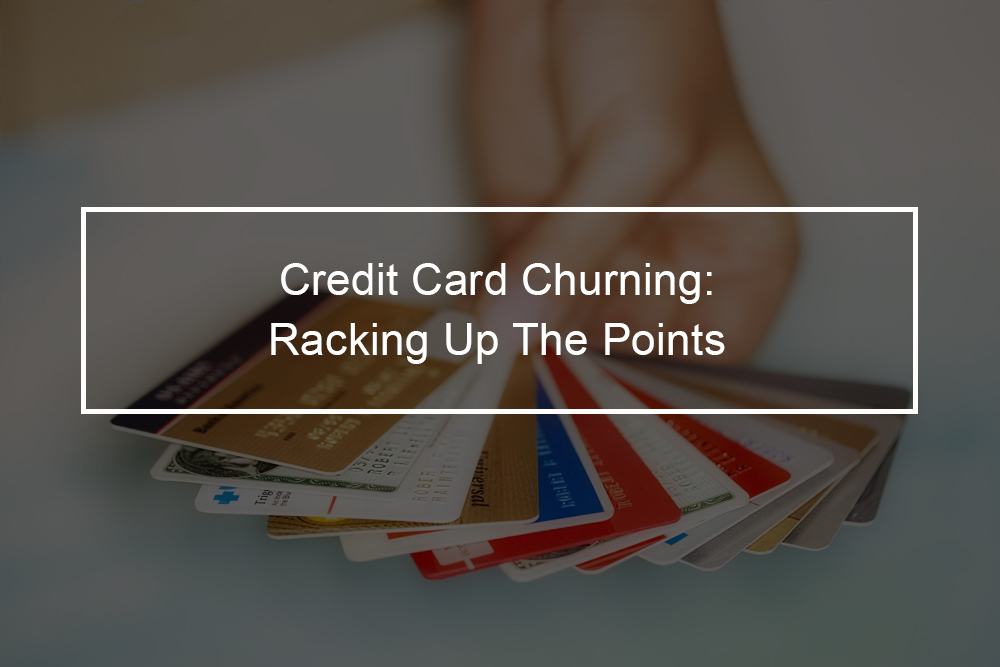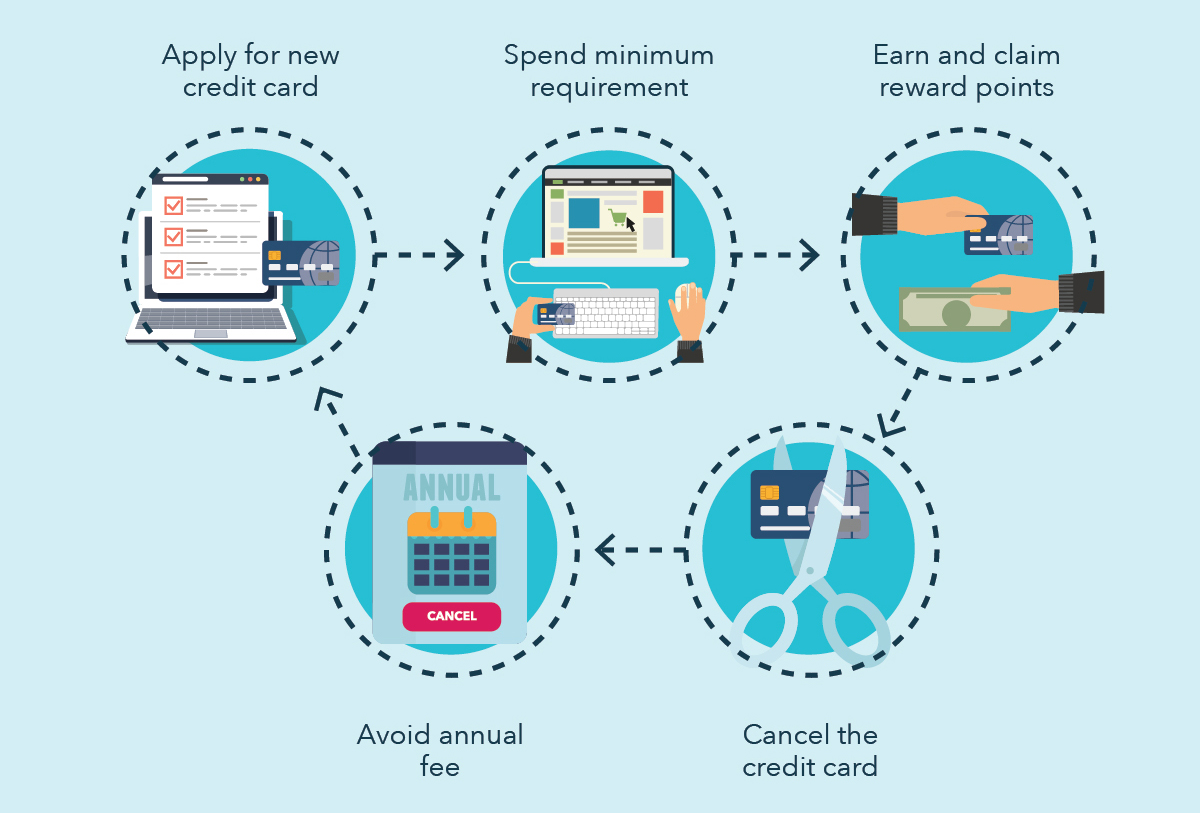If you are aspiring to be a credit card rewards junkie or you are one already, you might have heard about credit card churning, which is the practice of repeatedly opening credit cards to earn bonuses. Whereas signing up for several credit cards enables you to earn attractive bonuses and other perks, you can end up in debt or destroy your credit score if you are not responsible when using the credit cards. Understanding the basics of credit card churning before you implement can assist in protecting your finances.
Credit card churning explained
In its purest form, credit churning is opening the same credit card multiple times to earn the card’s signup bonus repeatedly. Churning also incorporates opening different new accounts to obtain signup bonuses and then closing the accounts. Some credit card churners have multiple credit cards open at the same period. Most credit card issuers provide a signup bonus when you first sign up for a card. For example, you can earn thousands of bonus points or miles after you spend a specific amount of money on purchases on the credit card within a short period of opening the account. Even better, you can also score extra points in case you include an authorized user at the same time.
Does credit churning hurt your credit score?
Every credit card application can reduce your credit score by a few points. It is a hard inquiry. Inquiries account for ten percent of your credit score. Every inquiry remains on your credit report for two years. However, it only affects your credit score for the first year. The impact on your score reduces over time. Opening a new card may result in your credit score going down in case you carry a balance on other cards, and that further assists you reduce your utilization ratio. It can lower your score by lowering the average age of all your credit accounts.
Closing a credit card can influence your credit score in different ways. In case you carry a balance on other credit cards, the loss of the available credit could result in your utilization ratio goes up and your score to reduce. In case you have zero balances across the board, closing does not impact your utilization ratio at all. Utilization accounts for thirty percent of your credit score.
In case you close an older card, your standard account age may reduce, and your score could drop. In case you close a newer card, your standard account age may rise, and your score could increase. Account age makes fifteen percent of your credit score. If you have excellent credit and lengthy credit history, opening and closing cards may not impact your score in a significant way. However, if your credit score is standard or weak or falls near the cusp of two credit score divisions, the changes could more significantly impact your score.
What are the benefits of credit churning?
Most credit card issuers provide great welcome bonuses. New cardholders earn rewards inclusive of airline miles, cashback, or points that they can redeem for purchases in case they spend a specific amount within a certain time frame- often the first ninety days of opening the credit card.
These bonuses are better than the rewards you would earn for everyday use of a credit card. Signing up for various credit cards allows you to rack far more rewards than you would get in case you stuck with just one credit card. Generally, there is no requirement for you to use the card again or even keep the account running after you get the bonus, which makes churning credit cards a comparatively easy way to get rewards with minimal effort. You can use other methods, like combining rewards from loyalty programs or using rewards program shopping portals to increase the number of rewards you earn.
What are the dangers of credit card churning?
It would be really nice if we can all get an easy 50,000 point bonus a few times annually. This method, however, is not for everyone. Here are some dangers.
- You will run the threat of carrying debt: Most new cardholders fall into debt. Interest charges are bigger than rewards. When a spending threshold is needed to earn a bonus, you can be tempted to purchase things you do not need, just to register the purchase. Impulse purchasing is bad for your budget and can result in debt.
- You may not be able to keep with monthly payments: In case you juggle various credit cards that have spending requirements for a bonus, or even new cards in addition to your usual accounts, you can miss a payment. That can cause interest charges and late fees. Falling behind even one month can spiral into a vicious cycle of debt. Before you know it, your credit is suffering.
- It is easy to get distracted: It is easy to lose focus- before you realize it, you are upon a trail of offers, and you have forgotten what you initially wanted the points for. Another disadvantage of losing focus is the redemption value of the trip you want could change whereas you explore all the possibilities, or you can end up with points and miles that you are not likely to use.
- Yearly fees add up: You could pay a lot of money on annual fees. One of the essential jobs of a credit card churner is to watch which cards have fees. That is if the rewards outweigh the cost, and if to cancel the card to avoid an extra. In case you forget about the chip card when the annual fee comes around, it is likely to offset rewards significantly.
- Churning is time-consuming: Hardcore credit card churners are also known to spend upwards of an hour reading credit card offers and identifying the best ways to earn and increase their points. That is what you do not pay for with your money-you pay for it with your time.
- Churning needs high-level organization: From bonus points offers to interest rates and fees, to understanding how to increase redemptions and all the different ways to book a trip, there is a lot required. You need to be very detail-oriented.
- Churners risk the wrath of card issuers: After credit card issuers flag you as a card churner, you can be blacklisted. Note that the reason why credit card organizations offer generous signup bonuses is that they hope to gain long-term loyalty cardholders. When issuers lose money on new cardholder offers, they frown on credit card churning and might ban you for some time or even forever.
What are the limits of credit card churning?
Credit card issuers aim to gain loyal customers who will have their credit cards for more than a few months. To crackdown on credit card churning, most credit card issuers reduce the number of credit cards you can create, either within a particular time or over a lifetime. That restricts opening new credit cards just means you have to be more strategic about the time you open credit cards and the card issuers you approach.
Typically, churning credit cards is an enticing, if not controversial, way to earn signup bonuses from various credit cards. In case you have the information and techniques on how to succeed in churning, you can use the strategy to increase rewards with relatively little effort. If, nonetheless, you do not have the experience or spending habit of churning responsibly, signing up for several credit cards can harm your credit and put you in debt. Another option for these cardholders is to open one or two credit cards when their signup bonus is high and then sticking to them over the long term.













